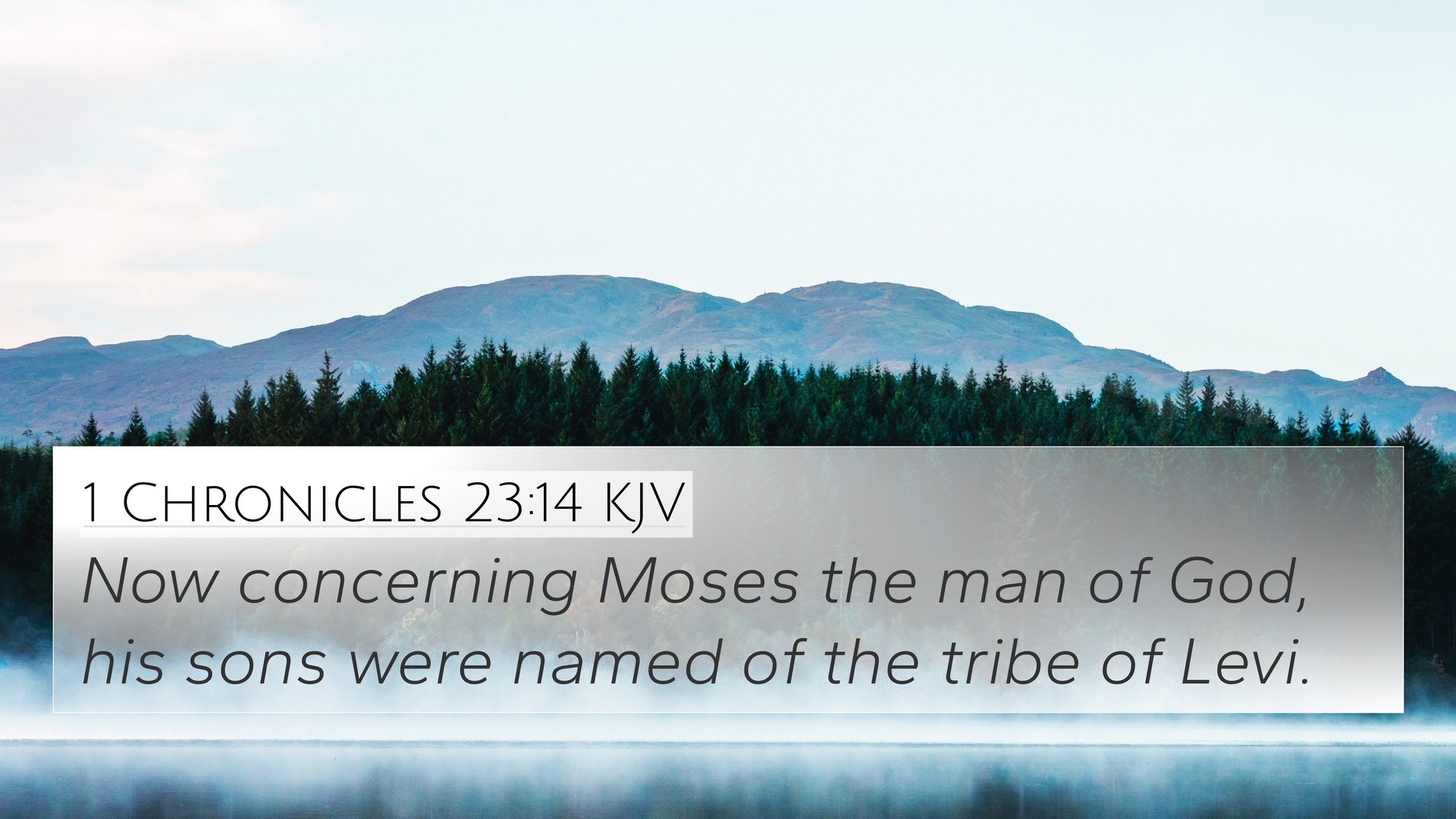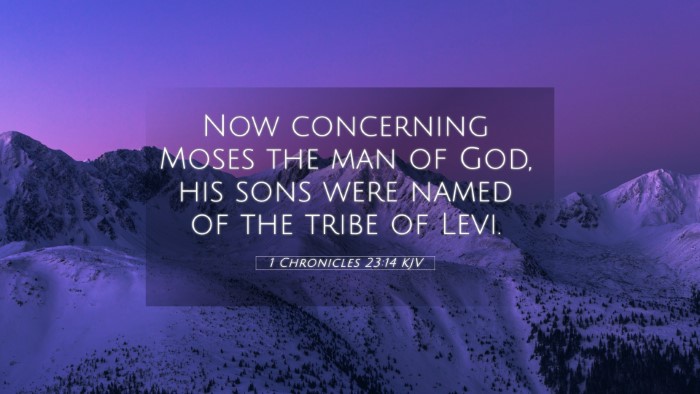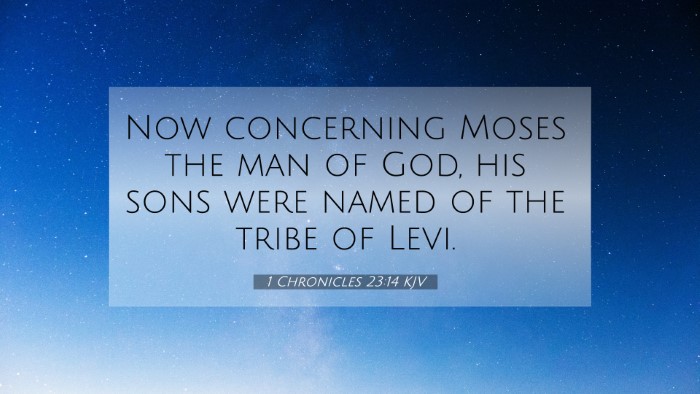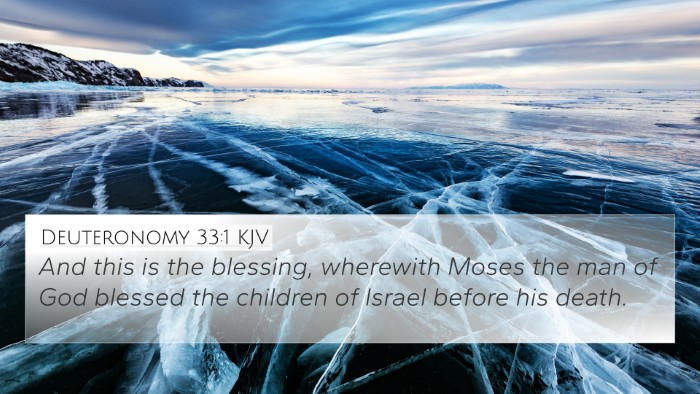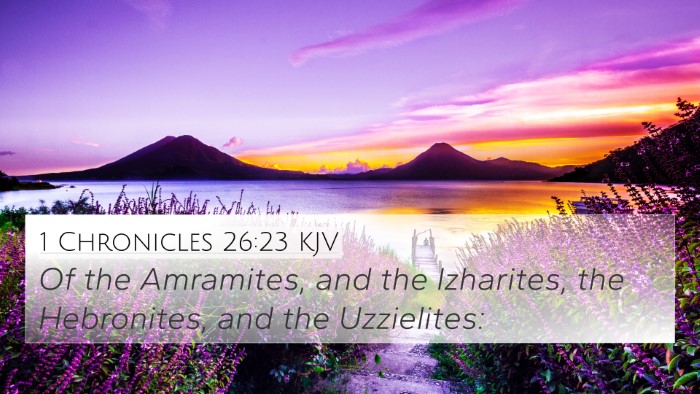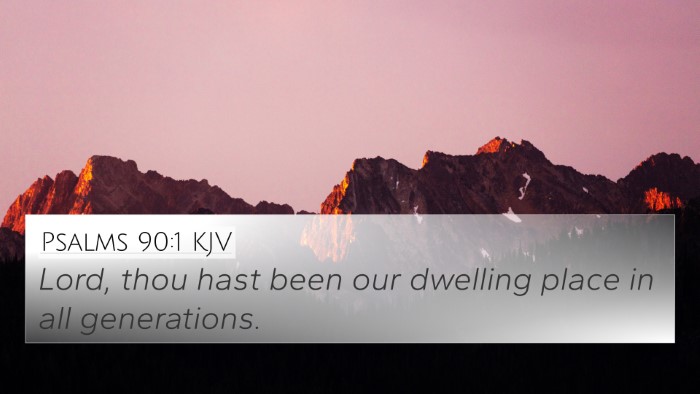Understanding 1 Chronicles 23:14
This analysis aims to explore the meaning of 1 Chronicles 23:14 using insights from classic public domain commentaries. The verse reads:
"And the sons of Moses, the man of God, were named of the tribe of Levi."
Summary of Biblical Context
The verse is part of the genealogical records designed to show the Levitical lineage and the significance of their roles within the sanctuary services. The context provides a broader picture of the shift in priestly duties and the heritage of the Levites as critical figures in ancient Israel's worship practices.
Commentary Insights
Matthew Henry's Commentary
Matthew Henry emphasizes the importance of Moses, noting that he is called the "man of God," a title underscoring both his prophetic role and extraordinary relationship with God. Henry highlights the significance of the Levites, showcasing their responsibilities in the religious practices of Israel. He points out that the mention of Moses' descendants reflects God's faithfulness in preserving rightful worship practices through generational lines.
Albert Barnes' Notes
Albert Barnes elaborates on the relationship between Moses and the Levites. He discusses the notable distinction that although Moses was from the tribe of Levi, his descendants were designated for specific roles in the sanctuary. This verse illustrates the continuing legacy of Moses’ spiritual heritage and the established order among the Levites who were tasked with various duties related to the temple.
Adam Clarke's Commentary
Adam Clarke delves into the spiritual implications of the verse. He suggests that this verse reinforces the sacred duty associated with being a Levite, particularly under Moses' lineage. Clarke notes the importance of divine choice in determining who would serve in the most revered roles, indicating that faithfulness to God entails receiving His directives through designated leaders like Moses.
Cross-References for 1 Chronicles 23:14
Understanding the connections between this verse and others enhances our grasp of its implications. Here are some pertinent cross-references:
- Exodus 6:20 - Details Moses' immediate family and his Levitical line.
- Numbers 3:1-3 - Discusses the genealogy of Moses and Aaron as Levites.
- Deuteronomy 33:8-11 - Addresses the blessings on the tribe of Levi and their special role.
- 1 Chronicles 6:1-5 - Further elaborates on the lineage of Levi, extending the family history.
- Hebrews 7:11-14 - Compares the priestly order of Levi with that of Melchizedek, illustrating the significance of these lineages.
- Psalm 99:6 - References Moses and Aaron among His priests, emphasizing their roles in leading worship.
- Luke 1:5 - Mentions direct descendants of Levi in the New Testament context, showing continuity.
Thematic Connections
The thematic connections within the Bible reveal a larger narrative about God’s chosen vessels for leading His people in worship. Here are a few insights:
- Divine Selection: Just as Moses was chosen, so were his descendants selected to maintain the spiritual authority within Israel.
- Faithfulness and Legacy: The responsibility that passes through generations signifies the importance of teaching and living according to God's laws.
- Role of the Levites: The Levites’ obligations in worship underscore the necessity of dedicated service to God, highlighting a theme of devotion and reverence.
Inter-Biblical Dialogue
This verse serves as a bridge that connects the Old Testament themes of priesthood and worship to New Testament principles of service and sacrifice. The connections between Old and New Testament allow for comparative analysis:
- Understanding the transition from the Levitical priesthood to the priesthood of all believers as described in 1 Peter 2:9.
- Exploring how Jesus fulfills the Law and serves as the ultimate High Priest, linking back to the significant roles of Moses and the Levitical line.
Conclusion
1 Chronicles 23:14 encapsulates the pivotal role of Moses' lineage in the spiritual framework of Israel. It reminds us of God's continuous guidance and the importance of heritage in maintaining godly worship. The insights from Matthew Henry, Albert Barnes, and Adam Clarke emphasize the value of understanding our biblical heritage, not just for historical context but for its application in our lives today. Through exploring the connections between Bible verses, we not only enrich our understanding but also deepen our relationship with God's Word.
